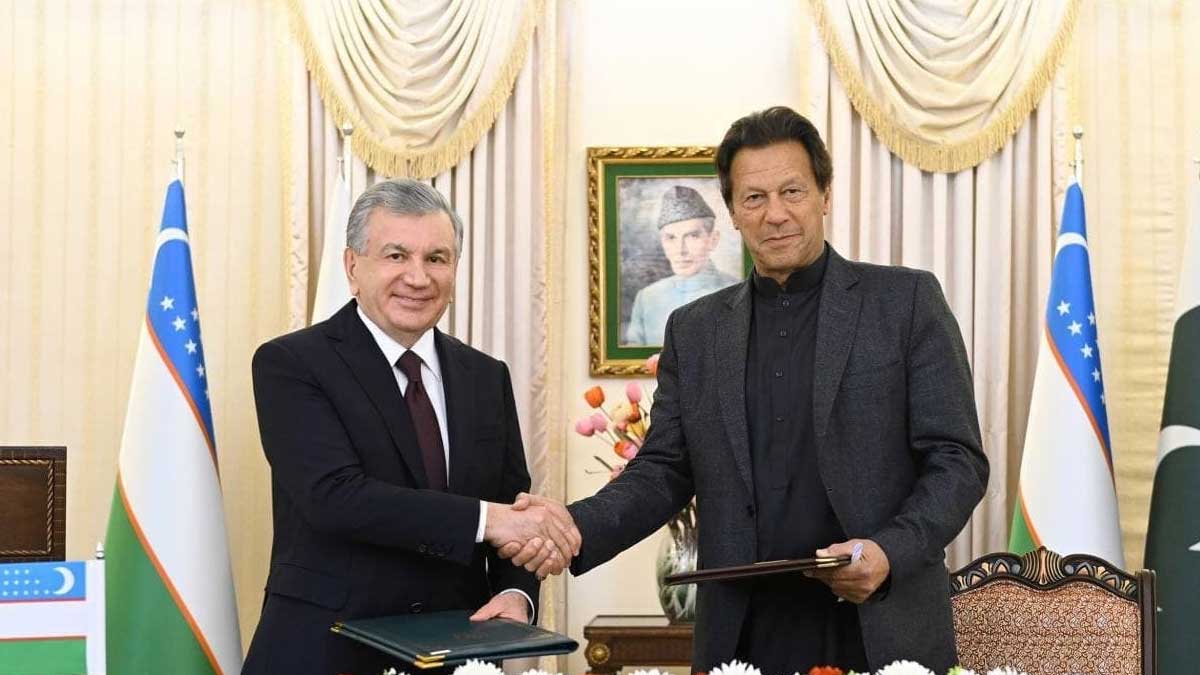Pakistan and Uzbekistan have decided to further expand and deepen their strategic partnership in all areas and agreed to determine an accord on strategic partnership.
This decision was taken during the conference held between Prime Minister Imran Khan and President Shavkat Mirziyoyev in Islamabad.
In line with a joint statement, the leaders held inclusive discussions and reflected on all aspects of bilateral relations.
The meeting paid special consideration to the development of collaboration in science and technology, trade and economics, education, culture, security and defense, and regional connectivity.
Read more: Uzbekistan to invest in textile sector of Pakistan
Moreover, both the leaders reiterated their commitment to close communication was based on common positions and to continue the experience of conjoint support at international and regional opportunities on all issues of mutual interest.
The two leaders laid stress on the significance of developing established cooperation between Pakistan and Uzbekistan within the five core pillars of Pakistan’s “Vision Central Asia” political and diplomatic, energy and connectivity, trade and investment, security and defense, and people-to-people relations.
In addition, the two premiers also showed an agreement on the necessity to fast-track measures to further increase the connectivity agenda and economic integration.
Khan and Mirziyoyev accredited the key role of agreed connectivity corridors which visualize expansion of trade links by proposing investment opportunities in the power pipelines, transport network, and Special Economic Zones in the interests of both the countries.
Furthermore, both the wings reiterated the vital role of the Termez-Mazar-e-Sharif-Kabul-Peshawar railway project for the future of the region. Approval was given by the two sides to evolve a mutual “Road Map”, which comprises measures to develop a feasibility report for the project and start construction work on both sides.
They also decided to continue giving humanitarian support to Afghanistan and highlighted that peace and stability in Afghanistan are vital to developing connectivity agenda which will lead to regional prosperity.
The two leaders also sign an agreement to play their part in addressing disputes of global and regional importance within the frame of the Organization of Islamic Cooperation, the United Nations, and the Shanghai Cooperation Organization.





















